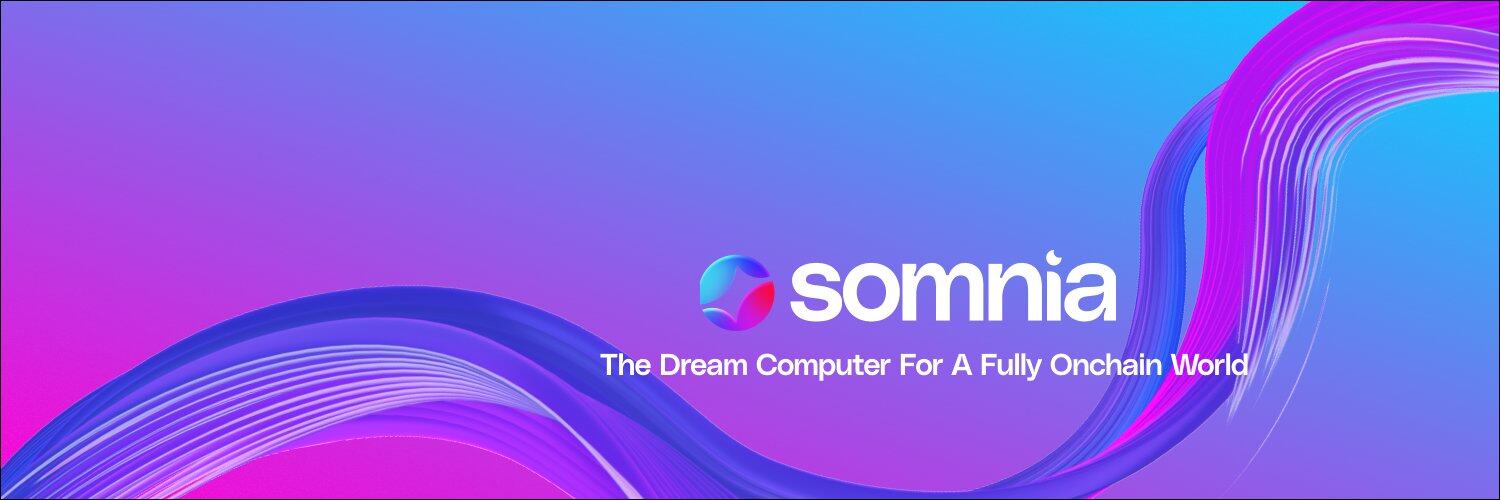Original | Odaily Planet Daily ( @OdailyChina )
Author | Asher ( @Asher_0210 )

Yesterday, Somnia announced on the X platform that airdrop eligibility checks were now live, requiring users to connect to their Somnia Quests wallet. However, the excitement surrounding the "another lucrative project" was far from palpable. Instead, the results disappointed many real users, with many discovering they were ineligible. Public opinion quickly turned to questioning: far from being a "small profit," the airdrop was even suspected of insider trading and black-box operations.
Project Introduction

Somnia is a Level 1 project dedicated to connecting the metaverse into a unified virtual society, enabling an open, unified metaverse where users can seamlessly move across various experiences. By upgrading existing NFTs, Somnia provides builders with unlimited possibilities for creating transferable and recombinable content.
Paul Thomas, founder of Somnia, said: "The launch of Somnia is not only a major step forward for the metaverse, but also a game-changer for blockchain technology. Most blockchains are well-suited to finance, and we've seen great innovation in DeFi, but these limitations have hindered more social and creative enterprises from taking off. The protocol we're releasing will realize the vision of an interconnected and composable metaverse, and I hope it will spark new communities of collaboration across the field."
The airdrop share accounts for 4.1%, and TGE only unlocks 20%, and the remaining 80% will be fully unlocked 60 days after the mainnet mission begins
Not only is the airdrop ratio of Somnia allocated to early users extremely low, but 80% of it is locked and can only be unlocked after completing the mainnet tasks.
Yesterday, Somnia announced the token model while announcing the launch of airdrop eligibility query. The total number of project tokens is 1 billion, of which 5% will be allocated to the community, and 4.1% of this will be allocated to early users who have participated in testnet interactions.
To prevent a concentrated sell-off during the TGE due to a large airdrop, which could lead to significant token price fluctuations, the team has designed a phased unlocking mechanism: only 20% of the airdrop will be released during the TGE, with the remaining 80% tied to post-mainnet launch tasks. Specifically, token unlocking will be phased in, with each completed task unlocking a corresponding percentage of tokens. The entire process is expected to be completed within 60 days of the mainnet launch.
In addition, all airdrop users will have a 90-day window to complete these tasks and receive tokens. If they fail to complete them within the specified period, the unclaimed portion will be automatically recovered and injected into the ecological fund for subsequent ecological construction and incentives.
Odyssey was made, test coins were received, KYC was done, NFT was purchased, but airdrop qualification was not available.
For many long-term testnet enthusiasts, the real disappointment wasn't the small allocation or the fact that only 20% of the airdrop was unlocked during the TGE. The hardest part was the disbelief that despite their considerable investment, the query results showed they were "ineligible."
Because of this, community sentiment took a sharp turn for the worse. First, a large number of users expressed strong dissatisfaction with the opaque KYC mechanism and eligibility screening. Many "money-grubbing" (throwing money) who persisted in participating in the testnet pointed out that the project failed to disclose the full token economics before the airdrop, yet required users to spend nearly $5 on KYC, only to find that few qualified, creating a sense of "anti-money-grubbing." In particular, the stark disparity between the Chinese and English communities was evident, with a large number of genuine participants in the Chinese community being eliminated, while many more in the English community received the airdrop, further exacerbating concerns about fairness.
Secondly, the community expressed outrage over the airdrop distribution and entry requirements. Some argued that since 225,000 people participated in the KYC process, a symbolic amount could be given to each participant, even if it wasn't much, to demonstrate fairness. However, the reality is that even among the 65,000 people who completed KYC and achieved a score of 30 or above, only a small number qualified. The vague rules and unfair distribution have left many users disheartened.
Finally, veteran users were particularly emotional. Many recalled months, even six months, of dedication: checking in almost daily, completing most of the Odyssey missions, claiming test coins, completing KYC as required, and even purchasing the official NFTs, only to be told they were "ineligible." This sense of rejection left users furious.
Founder's response: There are problems with some accounts in the airdrop query results, and we are actively working to resolve them.
In response to a surge of negative feedback from users who participated in early testnet interactions after the launch of the airdrop query, Somnia founder Paul Thomas posted on the X platform that some accounts were indeed anomalies in the airdrop query results. The team is actively addressing the issue and promised to release an announcement as soon as the problem is resolved. Users are asked to be patient.
However, many community members weren't convinced, believing it was merely an official excuse to mitigate the current surge of negative sentiment. Rather than simply stating that the issue was being addressed, users wanted a clearer and more transparent explanation, such as the precise cause of the anomaly, the number of individuals affected, and how the issue would be addressed. However, the founders failed to provide this crucial information.
Some users even bluntly called the response a delaying tactic. Rather than the team actively addressing the issue, they were simply buying time to prevent further negative sentiment. They worried that by the time the so-called "announcement" came out, the real issues might still not be addressed directly.
Amidst disappointment and skepticism, the community generally questioned: If even the airdrop, which best reflects fairness, cannot be made open and transparent, then how many early users will be able to continue using Somnia after the subsequent mainnet launch?
- 核心观点:Somnia空投分配不公引众怒。
- 关键要素:
- 空投仅4.1%且80%锁仓。
- 大量用户投入精力却无资格。
- 创始人回应模糊未解决问题。
- 市场影响:损害项目信誉,用户流失风险高。
- 时效性标注:短期影响。


